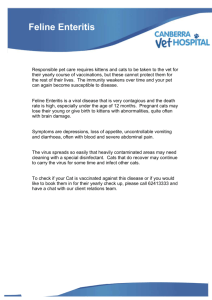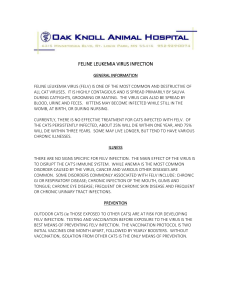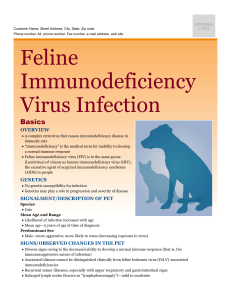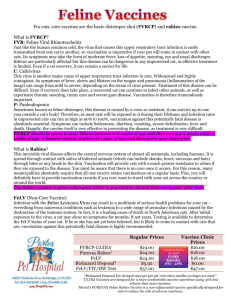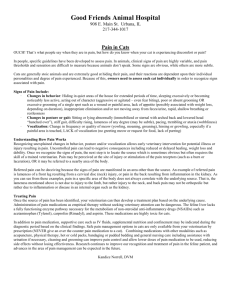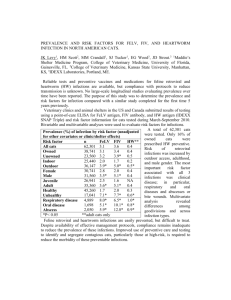POXVIRUS - Ark Veterinary Centre
advertisement
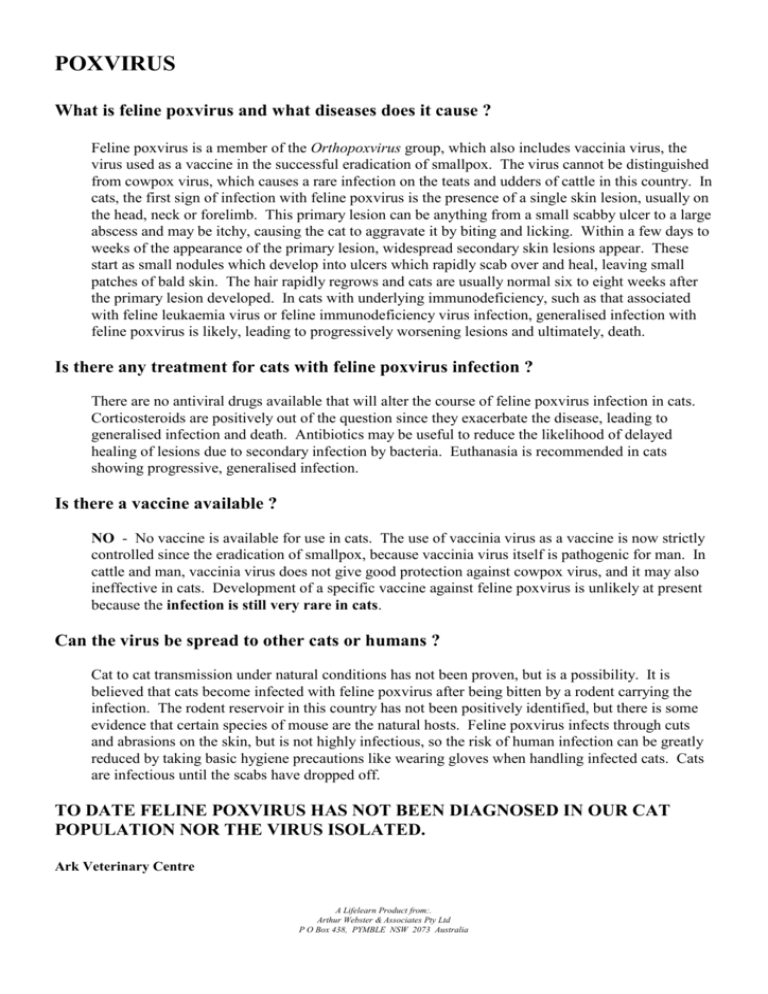
POXVIRUS What is feline poxvirus and what diseases does it cause ? Feline poxvirus is a member of the Orthopoxvirus group, which also includes vaccinia virus, the virus used as a vaccine in the successful eradication of smallpox. The virus cannot be distinguished from cowpox virus, which causes a rare infection on the teats and udders of cattle in this country. In cats, the first sign of infection with feline poxvirus is the presence of a single skin lesion, usually on the head, neck or forelimb. This primary lesion can be anything from a small scabby ulcer to a large abscess and may be itchy, causing the cat to aggravate it by biting and licking. Within a few days to weeks of the appearance of the primary lesion, widespread secondary skin lesions appear. These start as small nodules which develop into ulcers which rapidly scab over and heal, leaving small patches of bald skin. The hair rapidly regrows and cats are usually normal six to eight weeks after the primary lesion developed. In cats with underlying immunodeficiency, such as that associated with feline leukaemia virus or feline immunodeficiency virus infection, generalised infection with feline poxvirus is likely, leading to progressively worsening lesions and ultimately, death. Is there any treatment for cats with feline poxvirus infection ? There are no antiviral drugs available that will alter the course of feline poxvirus infection in cats. Corticosteroids are positively out of the question since they exacerbate the disease, leading to generalised infection and death. Antibiotics may be useful to reduce the likelihood of delayed healing of lesions due to secondary infection by bacteria. Euthanasia is recommended in cats showing progressive, generalised infection. Is there a vaccine available ? NO - No vaccine is available for use in cats. The use of vaccinia virus as a vaccine is now strictly controlled since the eradication of smallpox, because vaccinia virus itself is pathogenic for man. In cattle and man, vaccinia virus does not give good protection against cowpox virus, and it may also ineffective in cats. Development of a specific vaccine against feline poxvirus is unlikely at present because the infection is still very rare in cats. Can the virus be spread to other cats or humans ? Cat to cat transmission under natural conditions has not been proven, but is a possibility. It is believed that cats become infected with feline poxvirus after being bitten by a rodent carrying the infection. The rodent reservoir in this country has not been positively identified, but there is some evidence that certain species of mouse are the natural hosts. Feline poxvirus infects through cuts and abrasions on the skin, but is not highly infectious, so the risk of human infection can be greatly reduced by taking basic hygiene precautions like wearing gloves when handling infected cats. Cats are infectious until the scabs have dropped off. TO DATE FELINE POXVIRUS HAS NOT BEEN DIAGNOSED IN OUR CAT POPULATION NOR THE VIRUS ISOLATED. Ark Veterinary Centre A Lifelearn Product from:. Arthur Webster & Associates Pty Ltd P O Box 438, PYMBLE NSW 2073 Australia
